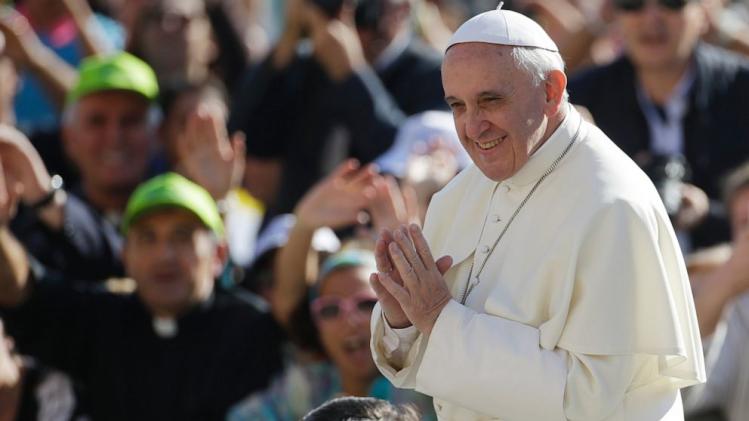Pope Francis Not in Danger From Mafia, Vatican Says

The Vatican dismissed concerns today that Pope Francis could be a target of Italian organized crime because his reforms threaten what one mafia expert said were long-time ties between the church and criminal syndicates.
Recent news reports quoted Nicola Gratteri, a respected Italian anti-mafia prosecutor, as having said that the pope's drive to reform the Catholic Church was making organized-crime members "nervous." He added, "I cannot say if the organization is in a position to do something like this, but they are dangerous and it is worth reflecting on.""There is no concrete reason that would lead us to worry. There is no reason to feed alarmism," the Rev. Federico Lombardi, the director of the Vatican's press office, told ABC News. "We are very calm."
Gratteri has investigated the globally-powerful clan organization with roots in the Calabria region of Southern Italy called the 'Ndrangheta. He made these remarks on Italian TV channel RAINEWS24 when presenting his newly-released book "Holiest Water" about the Catholic Church and ties to the 'Ndrangheta criminal syndicate.
Gratteri also said that the pope was dismantling centers of economic power, like in the case of the Vatican bank, which was changing clan member's ability to do business with the alleged complicity of the clergy.
Although the number of high-profile killings by mafia organizations has declined in Italy since the 1990s, organized crime groups are still very much involved in prostitution, extortion and drug trafficking and they wield enormous economic power.
The major Italian clans include the Sicilian Cosa Nostra, the Camorra from the southern city of Naples and the Calabrian 'Ndrangheta, which is considered one of the most powerful and vicious. Their combined illegal activities, according to the United Nations, generate an annual turnover of $150 billion.
The pope has publicly embarked on a reform of the church and has said he wants a "poor church for the poor." In just a week has spoken out twice during his early morning mass homilies against corruption, bribes and "dirty" money.
This is not the first time he has targeted criminal activity in his speeches. In May soon after his election and a day after the Vatican beatified a Sicilian priest murdered 20 years ago by the Sicilian Mafia, Pope Francis spoke out against Cosa Nostra, accusing them of exploiting and enslaving people.
At his weekly Sunday prayer to the faithful, he called on members of the Italian organized crime to repent. His words, recalled soon-to-be-saint Pope John Paul II's words 20 years ago when during a 1993 pilgrimage to Sicily, John Paul angrily shouted his call to Mafia members to repent or face the judgment of God.
A number of Italian judicial investigations over the years, however, have documented the collusion of members of the clergy with illicit political power and organized crime. In the preface to the book prosecutor Gratteri writes "from the beginning of the 1800's the men of the 'Ndrangheta benefited from the silence and the indifference of the church (often because of their interest). The first official criminal complaints were only made in the 1950's when the first pastoral letters were written and the 'Ndragheta' was deemed a "ruinous cancer."
Pope Francis' simple style and wish to be in close contact with the faithful has alarmed some who worry about his security, but the Vatican has repeatedly said that there is no reason to be concerned. The pope himself has said that he wants to keep his contact with people, but that he does follow the advice of his body guards. Although discreet, the Vatican has a well-trained security team that watches the pope as he moves about within --and outside --Vatican walls.
Today in the latest sign of his desire to scale back the formality and security restraints of his office, he travelled in his Ford Focus car in a five-car motorcade through Rome's traffic with no siren and no special road blocks on his first state visit to the Italian president, Giorgio Napolitano. Two police motorcyclists drove alongside the pope's car in the motorcade through the streets as an escort. The Vatican had declined the traditional escort by presidential guard on horseback when planning the visit.
These state visits, normally full of pomp and involving large delegations, turned into a much quieter and less staid affair today. The pope was accompanied by a delegation of only eight cardinals and bishops. He conversed in a relaxed fashion as he walked slowly in pace with the 88-year old president and in yet another break from tradition, went up to embrace and bless the children of the palace's employees who were gathered to greet him.

ไม่มีความคิดเห็น:
แสดงความคิดเห็น